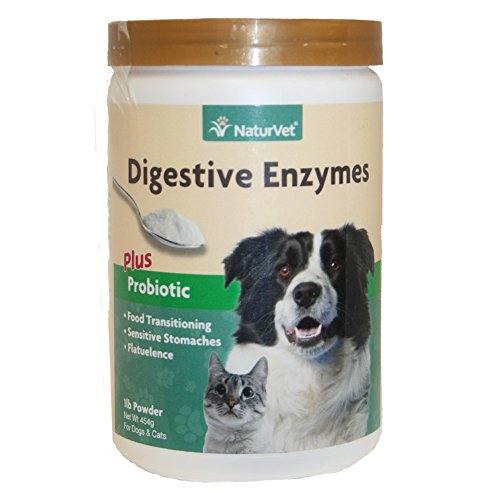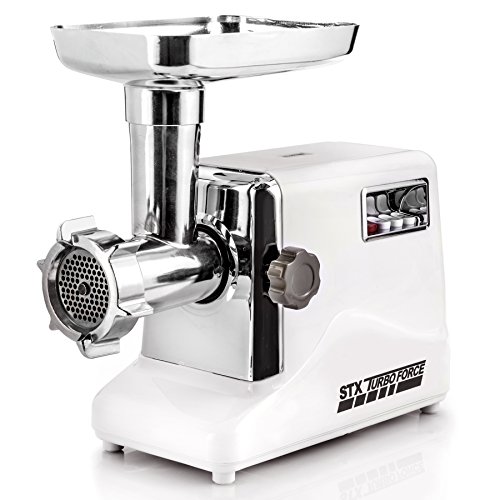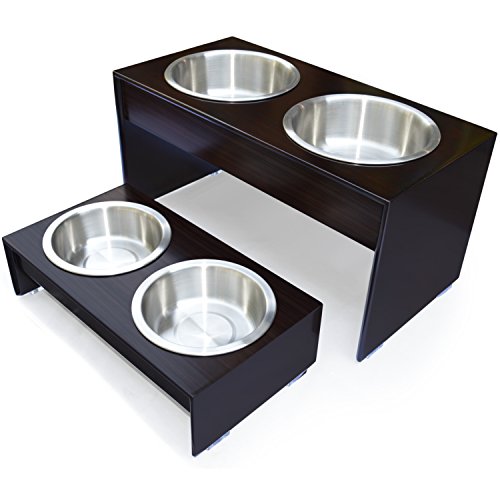

Nowadays, if you browse the web for canine nutrition and wellness, topics about various kinds of supplements for dogs will certainly appear. But, does your pet really need these dietary enhancements?
To be honest, there are varying views when it comes to this topic. Some will urge you to buy all kinds of supplements for a happier, healthier and longer canine life. Others believe that giving their dog proper food is enough. Having said that, this article will help you decide whether your four-legged friend needs supplements or not.
In today's market, there is a long list of supplements that you can give your dogs. For now, let us focus our attention to the five most commonly prescribed supplements for dogs.
Produced by your dog's pancreas are protein molecules that help him break down his food, absorb nutrients and eliminate toxins. However, if your dog is ill, their pancreas cannot make sufficient amounts of digestive enzymes. Aside from that, as your four-legged friend gets older, enzyme production will also decrease.
Because of those mentioned reasons, adding digestive enzymes in your pet's diet, whether through whole foods or supplementation will make a big difference. This will not only enhance your pet's ability to digest his food and absorb nutrients. Digestive enzymes can also strengthen his immune system and improve his metabolism.
When should you include digestive enzyme supplements?

If you're feeding your dog meals that consists of raw meat, supplementation is not necessary. This is because raw animal flesh already has digestive enzymes. Cooked and processed foods, on the other hand, lack digestive enzymes. Hence, adding this type of supplement in your pet's daily meals is highly recommended.
As I've mentioned in my previous article, if you're going to feed your beloved canine friends with fruits and vegetables, it would be best to blend or mix it with enzyme supplements for dogs. This will not make fruits and vegetables 100% digestible. But, it will improve nutrient absorption.
What to look for?
Animal-based digestive enzyme supplements are the most common product sold in today's market. It is primarily made of pancreatin from a pig or a cow's pancreas. It has enzymes like amylase, lipase and protease making it an ideal supplement for dogs with damaged pancreas. This supplement can also help in carbohydrate and protein digestion.
Aside from animal-based, there are also enzyme supplements that are primarily made of microbes and plants. These products are typically given if your dog has gas and bloating problems.
Important notes
Whole food alternative
Tripe is an excellent source of digestive enzymes. But, you have to opt for the uncleaned version with green juices in it. It must also come from a grass-eating animal. Lastly, as I've mentioned above, heat can make enzyme useless. Thus, it is a must that you feed it raw so your canine friend can get its greatest benefits.

Lies within your dog's digestive tract are bacteria that improve your dog's health. This may contradict the popular belief that microorganisms cause harm. But, as you know, not all bacteria can bring forth diseases. There are certain microorganisms like Lactobacillus acidophilus or Bifidobacterium lactis that can help strengthen your dog's immune system and promote a healthy digestive system. How so?
Basically, when good and bad bacteria compete for nutrients and space, it deters bacterial overgrowth. So, the question now, does your dog need probiotic supplements?
When should you give probiotic supplements?
Typically, your dogs don't necessarily need a daily dose of good bacteria. But, there are instances when the balance between the good and the bad bacteria will inevitably be disturbed.
Medications specifically antibiotics, for example, can unbalance this normal flora. Stress and diet changes can also affect this natural setting. Hence, if any of these situations happened, probiotic supplements are usually recommended to help restore the natural balance of good and bad bacteria.
What to look for?
When choosing the right probiotic supplement for dogs, opt for a product that has millions of Colony Forming Unit (CFU) per gram and a minimum of 10 bacterial strains or species. Aside from that, a mixture of probiotic and prebiotics is also a good product you can get. Basically, prebiotics are soluble fiber, which helps in the propagation of good bacteria in your dog's gastrointestinal tract. Powdered products may contain fewer bacteria compared to their label's claim. Hence, it would be best to opt for refrigerated or freeze-dried products. Lastly, only opt for a product that provides an expiration date.
Important note
Alternative
Green tripe is not only a good source of digestive enzymes; it also has loads of good bacteria.
Cheese, kefir or yogurt can also be included in your dog's meals. These food products also have good bacteria. But, be reminded that sugar and artificial flavorings is not recommended for your four-legged friend. So, you should only give them plain yogurt or kefir.
This article entitled "The Latest Research on Probiotic Supplements" may offer more important details about giving probiotics to your dogs.

We all know that vitamins and minerals play a crucial role in our pet's existence and longevity. Basically, these essential nutrients do not only strengthen your dog's immune system. It also helps in various bodily processes like digestion of proteins and fats. But, is a multivitamin supplement necessary? This will actually depend on several factors.
When should you opt for a multivitamin supplement?
As you know, older dogs have a hard time absorbing vitamins and minerals in their diet. Some of them eat less or loses their appetite because they're not feeling well. To cope with nutrient deficiency, a multivitamin supplement is typically prescribed.
If you're feeding your dogs commercial food, multivitamins are also recommended. Primarily because the heavy processing done in most commercial products can decrease its overall nutrient value.
What to look for?
When choosing for the right multivitamin brand, you must opt for a product that has at least eight essential vitamins and minerals in it. Aside from that, you should also check its sources. You can opt for products made from natural sources like liver (iron) and brewer's yeast (vitamin B complex).
Important note
Whole food alternative
Basically, the best natural source of vitamins and minerals are internal organs like liver. Some dogs do not like the consistency of animal organs, especially when given raw. So, you can slightly cook it.
Fruits and vegetables is another source of vitamins and minerals. However, dogs cannot fully digest these products. If you're going to add these food products in your pet's daily meals, blending it with digestive enzyme supplements will make a difference.
This article entitled "Important Vitamins For Dogs: What Kind Of Vitamins Are Necessary For Health?" may give you more information about the essential vitamins that your canine friends need.

Like humans, your dogs also need a daily dose of healthy fats for their body to function effectively. Omega-3 (EPA and DHA) is an example of essential fatty acids that can bring forth a long list of health benefits for your beloved canine friends. Reducing inflammation (arthritis) and improving your dog’s coat, fur or skin are some of these benefits. Studies have also shown that these substances can regulate a dog’s immune system, it’s good for their heart and it supports a puppy’s brain development.
Keep in mind that these fatty acids are very delicate. It can easily perish when exposed to air, high temperature and light. So, even if omega-3 is present in commercial dog food products, it has a very low possibility of surviving the heavy processing.
What to look for?
There are several supplements that contain essential fatty acids. Fish oil is found to have the highest amount of omega-3. Salmon oil and cod liver oil are other known supplements that have this specific substance.
Important note
Whole food alternative
An excellent way to add omega-3 in your dog’s diet is to include sardines, pink salmon (preferably cooked) and mackerel in his meals. In fact, one study shows that the omega-3 present in these kinds of seafood products are more stable and has a higher bioavailability compared to its capsule counterparts. You can also feed canned products, but don’t forget to opt for water-packed varieties or rinse it to lessen its sodium contents.

Glucosamine along with chondoitrin is vital to support healthy joints. Basically, the main function of these substances is to help maintain a cartilage's water content (65 to 80%). Through this, your dog's joints will be able to withstand shock or too much bone friction.
In addition to that, glucosamine is also essential to refurbish your pet's joints. As you know, arthritis is a byproduct of the wear and tear process. If there is an insufficient amount of this substance, the repairing process will not be able to keep up with the wear and tear process. Thus, this substance can also help prevent arthritis from developing.
When should you consider giving glucosamine supplement?
Typically, older dogs (7 years old and above) would benefit from this specific supplement. Athletic and working dogs, especially those that often do high intensity activities should be given supplements. This will make sure that their joints will be able to cope with the wear and tear process.
What to look for?
When choosing for the right supplement, you have to opt for human-grade products. Aside from that, you can also opt for glucosamine products with added vitamin C. Since vitamin C can support collagen synthesis, it also plays a major role in both tissue and bone repair.
Important note
Alternative
Raw fleshy bones with cartilages are the best natural source of glucosamine. In fact, one study shows that chicken cartilages and eggshells are more beneficial compared to supplements.
However, not everyone is a fan of feeding canines with bones. So, the next alternative you can do is to make bone broths. How do you make this specific broth? The video below will a detailed presentation.

When it comes to supplementation, never let a current hype influence your decision. Yes, most of the reasons mentioned above are sensible. However, dogs will have varying reactions to supplements.
With that said, not because it can bring forth wonders for your friend's pet, it will also do the same for your pet. Keep in mind that supplementation is not always the first course of action. Most canine enthusiasts and experts believe that you must first try to change your pet's diet before opting for various kinds of dietary enhancements. In relation to that statement, the part 2 of this article series entitled "Canine Nutrition and Wellness Part 2: Feeding Your Dogs Homemade and Unprocessed Meals" may give you a better view on home-cooked meals and raw feeding for dogs.
Another important reminder is that these products are not regulated by the FDA. Some products may or may not contain active ingredients that can help your dogs. Hence, you must only opt for trusted brands.
When giving supplements, always remember that moderation is always the key to a healthy canine life. Like humans, dogs also have their own chart for recommended daily doses of vitamins and minerals. As they say, “the difference between a poison and a healthy food is the quantity or dose”.
With that, if you're going to opt for supplementation, always follow the label's instruction in terms of dosages. It is also highly recommended to seek your veterinarian's advice to avoid over-supplementing.
 NaturVet Digestive Enzymes Plus Probiotic for Pets, 1-Pound
NaturVet Digestive Enzymes Plus Probiotic for Pets, 1-Pound Dog Ramps for the SUV
Dog Ramps for the SUV
 Pet Health Insurance
Pet Health Insurance
 The Maltese Dog is a Loving Companion to Royalty and Celebrities Alike
The Maltese Dog is a Loving Companion to Royalty and Celebrities Alike
 Alabama Rot and the Danger of Dog Walking
Alabama Rot and the Danger of Dog Walking
 How to have a Well Behaved Dog and Save Money at the Same Time
How to have a Well Behaved Dog and Save Money at the Same Time
 Canine Nutrition and Wellness Part 2: Feeding Your Dogs Homemade and Unprocessed Meals
Canine Nutrition and Wellness Part 2: Feeding Your Dogs Homemade and Unprocessed Meals
 Dogs Crates and Relaxation
Dogs Crates and Relaxation
Dogs Crates and Relaxation
Dogs Crates and Relaxation
 How to Exercise Your Dog: The Benefits and Tips For Exercise
Dogs Living In The Modern WorldFor centuries,
How to Exercise Your Dog: The Benefits and Tips For Exercise
Dogs Living In The Modern WorldFor centuries,
 Dangers of “Free to Good Home” ads
Dangers of “Free to Good Hom
Dangers of “Free to Good Home” ads
Dangers of “Free to Good Hom
 A Review of The Invisible Fence
Chubbymy pet LabradorI have a pet dog, named him Buddy, he i
A Review of The Invisible Fence
Chubbymy pet LabradorI have a pet dog, named him Buddy, he i
 Mastiff Lovers & Dinosaur Poop!
Loving and Owning a MastiffG
Mastiff Lovers & Dinosaur Poop!
Loving and Owning a MastiffG
Copyright © 2005-2016 Pet Information All Rights Reserved
Contact us: www162date@outlook.com